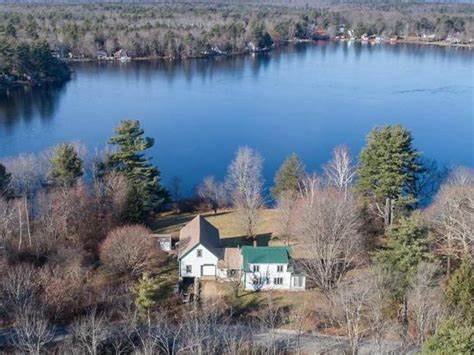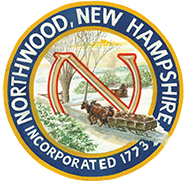About
The Budget Committee meets every year to recommend and review the Town, School, and Water District budgets. The committee members are elected and operate under RSA 32 Municipal Budget Law. The Committee is composed of 16 members, which includes ex-officio members from the Board of Selectmen, School Board, Northwood Cove Village District, and Water District.
The Municipal Budget Committee: Roles and Responsibilities
Margaret M.L. Byrnes
What is an Official Budget Committee?
No town is required to have a budget committee, but many towns do. If your town does have a budget committee, understanding the committee’s role starts with determining whether the budget committee is official or advisory.
Whether the committee is referred to as a budget committee, an advisory budget committee, a finance committee, or another name, unless it was adopted by the voters pursuant to RSA 32:14, it is not an official budget committee. Non-official budget committees serve in an advisory capacity to the governing body, which is in control of the budgeting process.
However, if the voters did adopt an official budget committee under RSA 32:14, the responsibility for budgeting has been delegated from the governing body to the official budget committee. In addition to the three to twelve members-at-large, an official budget committee must have one governing body ex officio member, and one village district and/or school board member ex officio, if there is a village district and/or school district that lies wholly within the town. RSA 32:15.
Therefore, while sections 1 – 13 of RSA Chapter 32 apply to all towns, village districts, and school districts that adopt an annual budget, sections 14 – 24 apply only to those with official budget committees.
Overview of Official Budget Committee’s Roles and Responsibilities
The purpose of the budget committee is to assist voters in the prudent appropriation of public funds. RSA 32:1. RSA 32:16 enumerates the four essential functions of the budget committee.
- Prepare the budget. It is the budget committee’s operating budget that is submitted to the Department of Revenue and presented to the voters for adoption at the annual meeting. That being said, the governing body, not the budget committee, has the authority to propose other appropriations (i.e., separate warrant articles containing appropriations). When a village district or school district lies wholly within a town with a budget committee, the town budget committee also prepares the proposed budget for that village district and/or school district. In addition, in SB 2 towns, the budget committee prepares the default budget as well as the proposed operating budget if the voters previously delegated that responsibility to the budget committee. RSA40:14-b; RSA 40:13, IX(b).
- Recommendations: As part of the budget committee’s role of assisting voters in the prudent appropriation of public funds, the budget committee is required to put its recommendation (or non-recommendation) on special warrant articles (along with the governing body’s recommendation). Furthermore, if the town meeting has voted previously under RSA 32:5, V-a or RSA 40:13, V-a to require recommendations by numeric tally on all warrant articles containing appropriations (and, in the case of RSA 40:13, V-a, ballot questions), the budget committee’s and governing body’s recommendations should appear on the warrant/ballot for all such articles. RSA 32:5, V-a and RSA 40:13, V-a also permit the governing body in a town to vote to include the numerical tally on these articles when the town meeting has not voted to do so.
Reviewing (not controlling) expenditures: In conjunction with budget committee’s responsibility to prepare the budget, the committee also has the authority to review current expenditures by acquiring a “comparative statement of all appropriations and all expenditures by them made in such detail as the budget committee may require.” RSA 32:22. In fact, RSA 32:22 says that the budget committee“shall meet periodically to review such statements.”
The purpose of this review is to determine whether the budget is meeting the needs of the town or school district, as the case may be, and to assist the budget committee in putting together a budget. In other words, reviewing current and past expenditures assists the budget committee in preparing future budgets, but it does not give the budget committee authority to control expenditures. See RSA 32:22.
- Communicate with the governing body and other officials and employees. The budget committee has not only the authority but also the obligation to “confer with the governing body or bodies and with other officers, department heads and other officials, relative to estimated costs, revenues anticipated, and services performed to the extent deemed necessary by the budget committee.” The statute goes on to say that it is “the duty of all such officers and other persons to furnish such pertinent information to the budget committee.”
Therefore, the basic process should work as follows: First, all officers and departments submit statements of estimated expenses and receipts to the governing body. Then, the governing body submits its own recommendations to the budget committee, together with all information necessary for the preparation of the annual budget, including each purpose for which an appropriation is sought and each item of anticipated revenue. In towns with a town manager, all officers and department budgets are submitted to the manager. The manager prepares a recommendation to the select board by January 31 of each year. RSA 37:6, V.
However, RSA 32:16 and RSA 32:17 also make it clear that the budget committee has the authority to request information directly from department heads and other officials. While necessary, requested information should be provided to the budget committee, the committee must remember that it has no authority to direct municipal staff work duties. Requests should provide a reasonable time frame and a reasonable format for producing the documentation. A careful balance must be attempted between acquiring information necessary for budget preparation and not interfering with the duties of other employees or officials.
- Conduct the budget hearings. At least one budget hearing must be held to “disclose or discuss” all purposes of appropriations. “Purpose of appropriations” includes separate warrant articles containing appropriations, in addition to the operating budget. No new purpose or amount (i.e., one that wasn’t disclosed or discussed at the hearing) can be added to the proposed budget without having an additional budget hearing. Additional budget hearings can be held up until the deadline for finalizing and posting the budget. For budget hearing and other deadlines, see NHMA’s Important Date Calendars at https://www.nhmunicipal.org/
- Forward the budget. The budget committee must forward copies of the final budgets to the clerk, as required by RSA 32:5, VI, and deliver two copies of the budget and recommendations on special warrant articles to the respective governing body at least 20 days before the date of the town meeting, to be posted with the warrant.
The 10% Limitation
In towns with an official budget committee, the total amount appropriated by the meeting, including amounts appropriated in separate and special warrant articles, cannot exceed the total recommended by the budget committee by more than 10 percent. RSA 32:18. The 10 percent calculation is computed on the total amount recommended by the budget committee (including separate warrant articles), less that part of any appropriation item which constitutes “fixed charges.” Fixed charges include appropriations for principal and interest payments on bonds and notes, as well as mandatory assessments imposed on towns by the county, state or federal governments.
In official ballot referendum (SB 2) towns and districts, the 10 percent limitation is calculated based on the initial recommendations of the budget committee prior to the first session, even if the budget committee changing its recommendations after amendments are made at the first session. RSA 32:5, V(b).
Exceptions to the 10% Limitation:
- Vote to override, RSA 32:18-a. If a warrant article for a bond is not recommended in its entirety by the budget committee, the governing body may vote to place the article on the warrant with the phrase “passage of this article shall override the 10 percent limitation imposed on this appropriation due to the non-recommendation of the budget committee.”
- Cost items excluded, RSA 32:19. Under RSA 32:19, amounts that are included in a budget for funding the cost items of collective bargaining agreements are exempt from the 10 percent rule.
As a final point, remember that an individual budget committee member has no authority to act on his or her own. The duties and authority described in RSA Chapter 32 are granted to a budget committee, not a budget committee member. Therefore, official action on behalf of the committee must be conducted through a quorum of the board.
This is just an overview! For more information on municipal budget law, refer to NHMA’s publication, The Basic Law of Budgeting.
Information that is Northwood Specific-
*** Northwood is an official budget committee (according to DRA).
*** In Northwood the Voters have not delegated the default budget responsibility to the Budget committee- it is the responsibility of the Governing body.
Sub-Pages
News and Notices
All newsNo notices at this time
Wanted
All wantedNo staff to display


